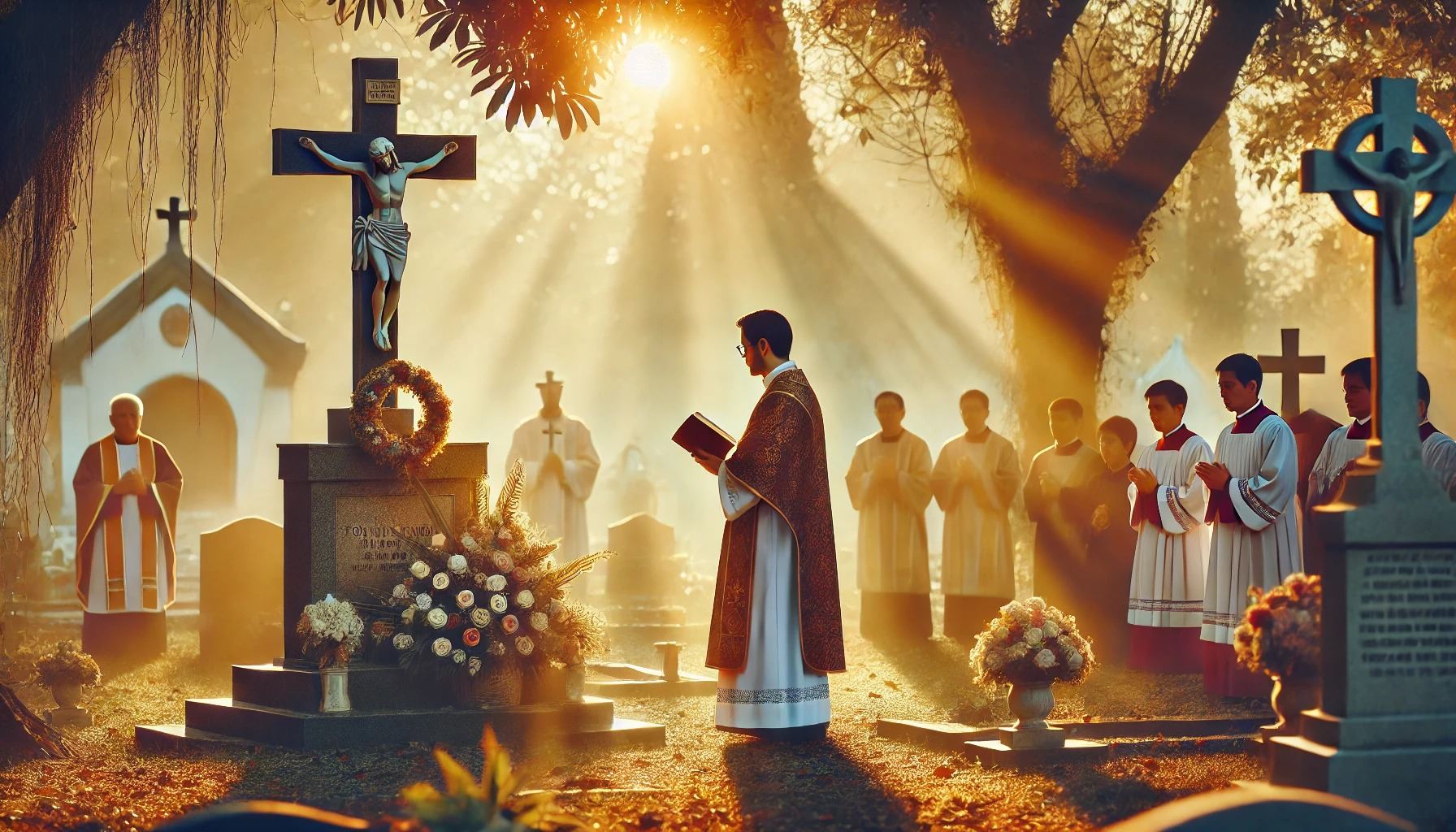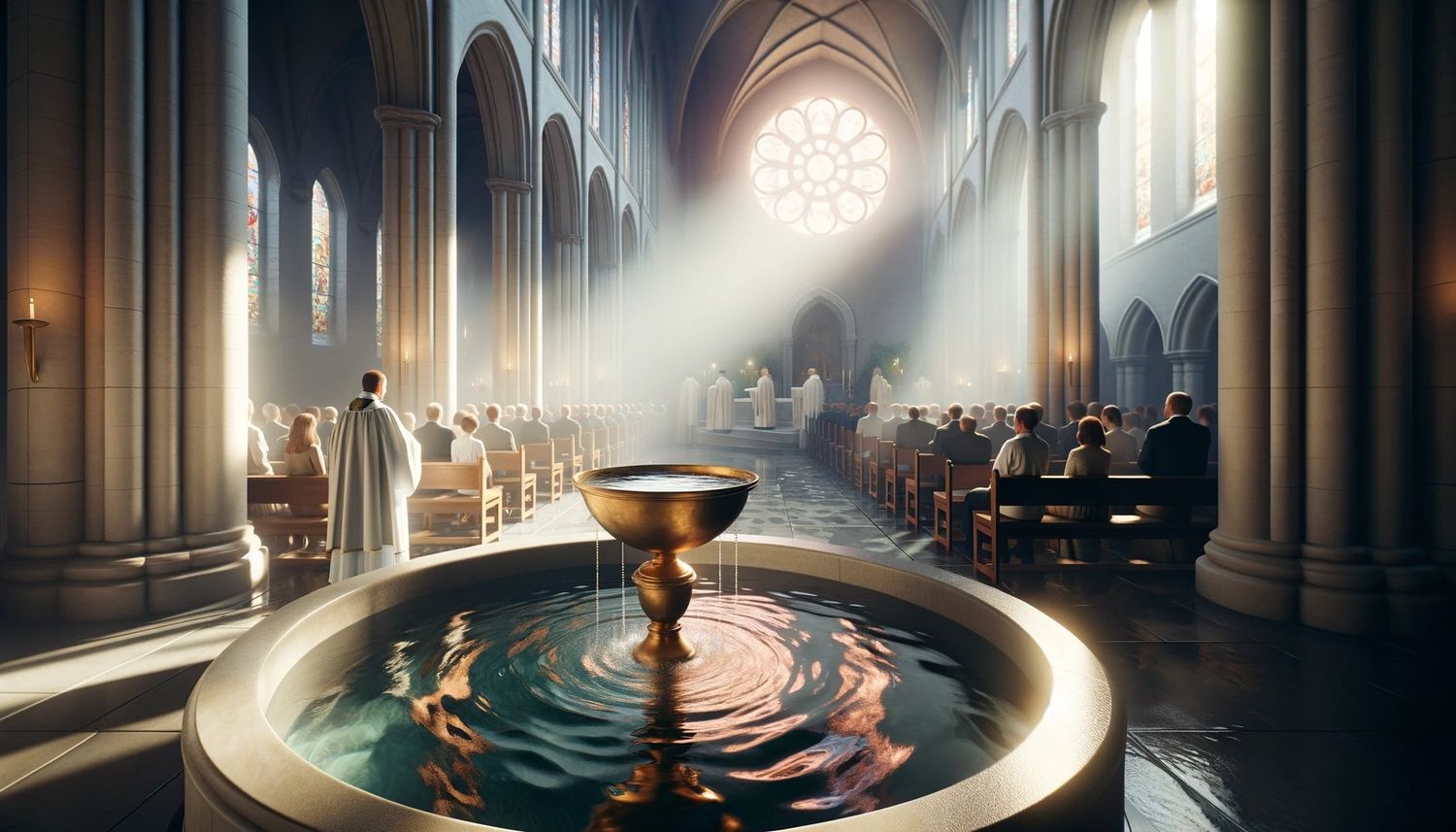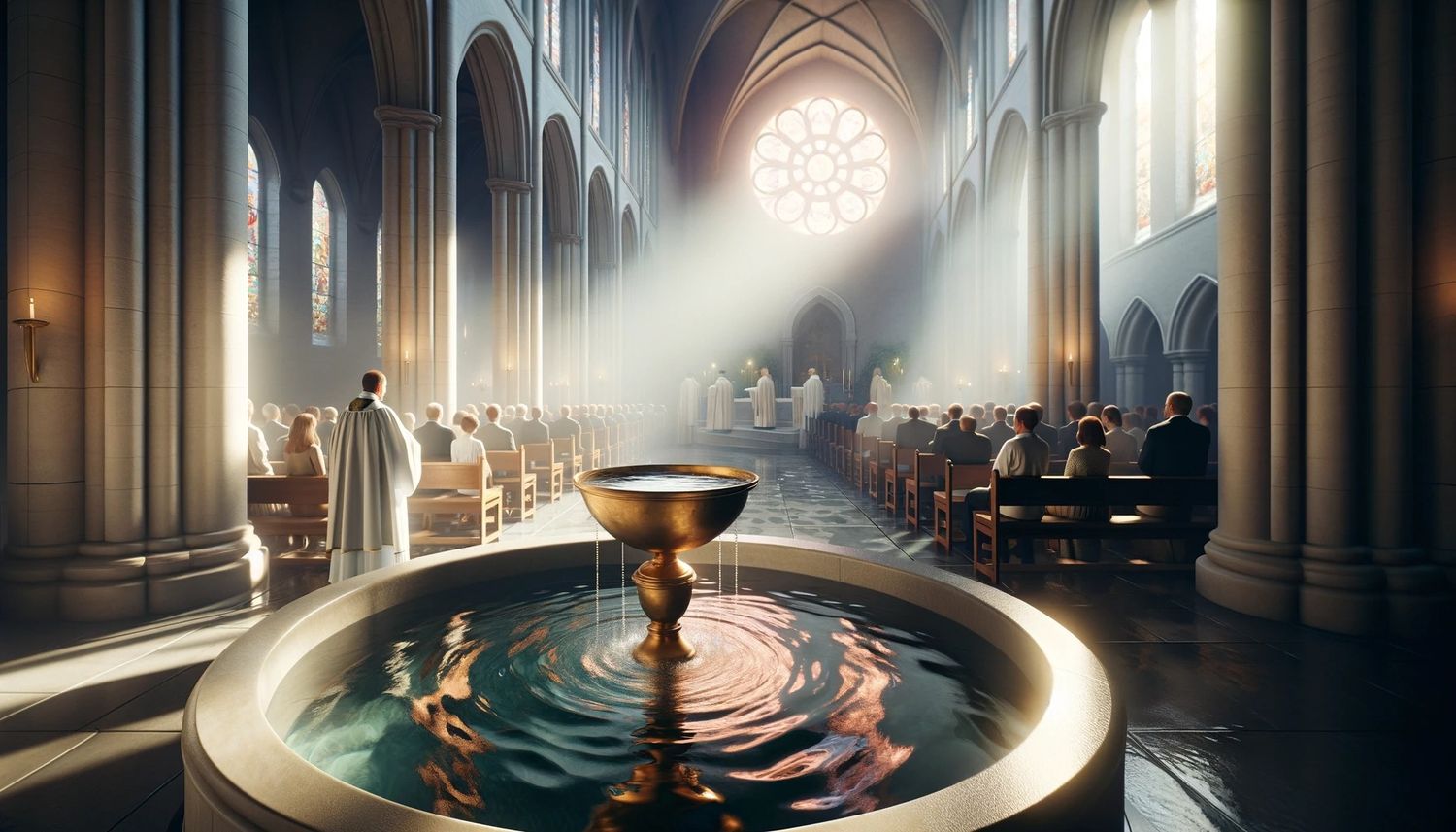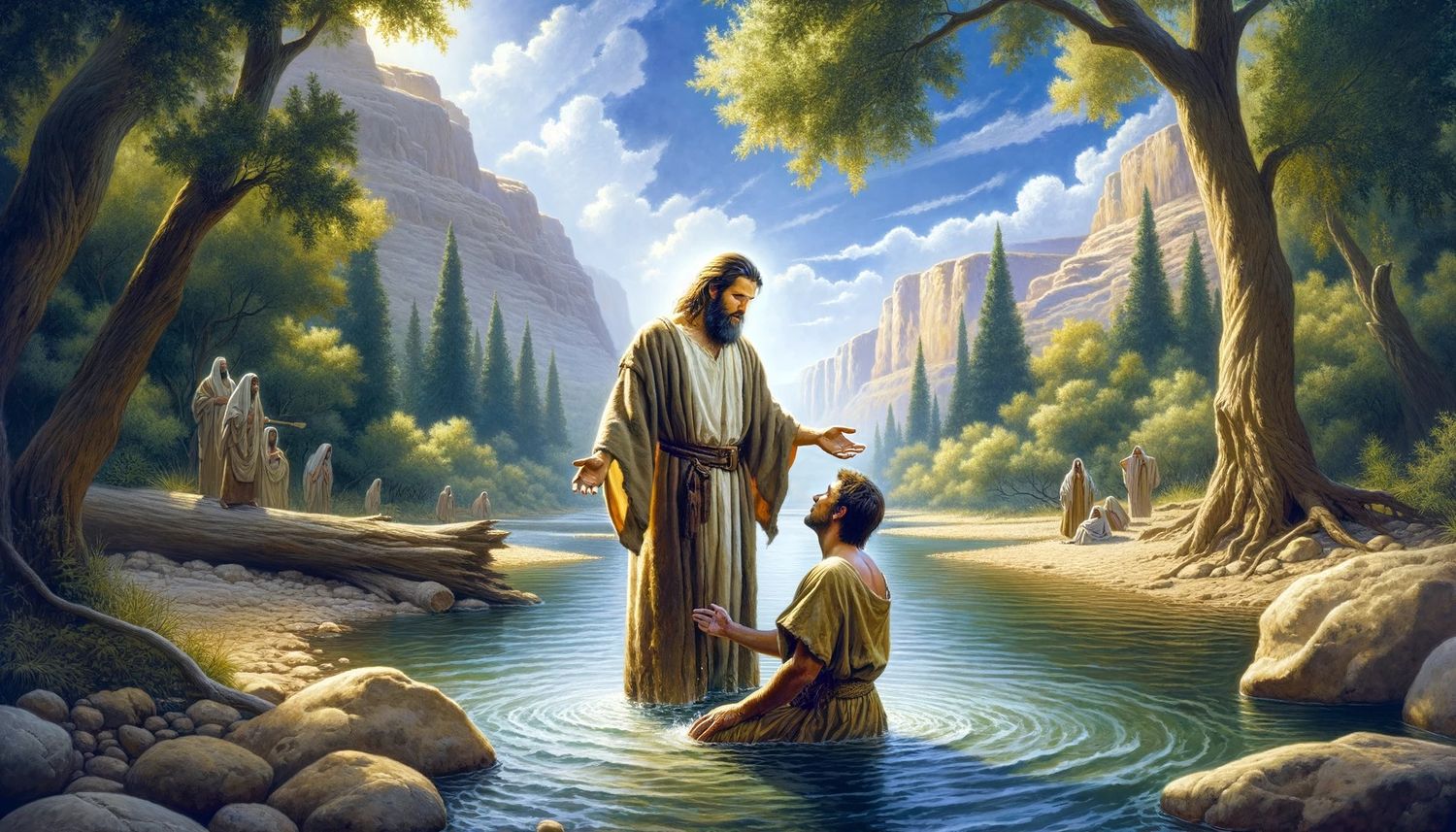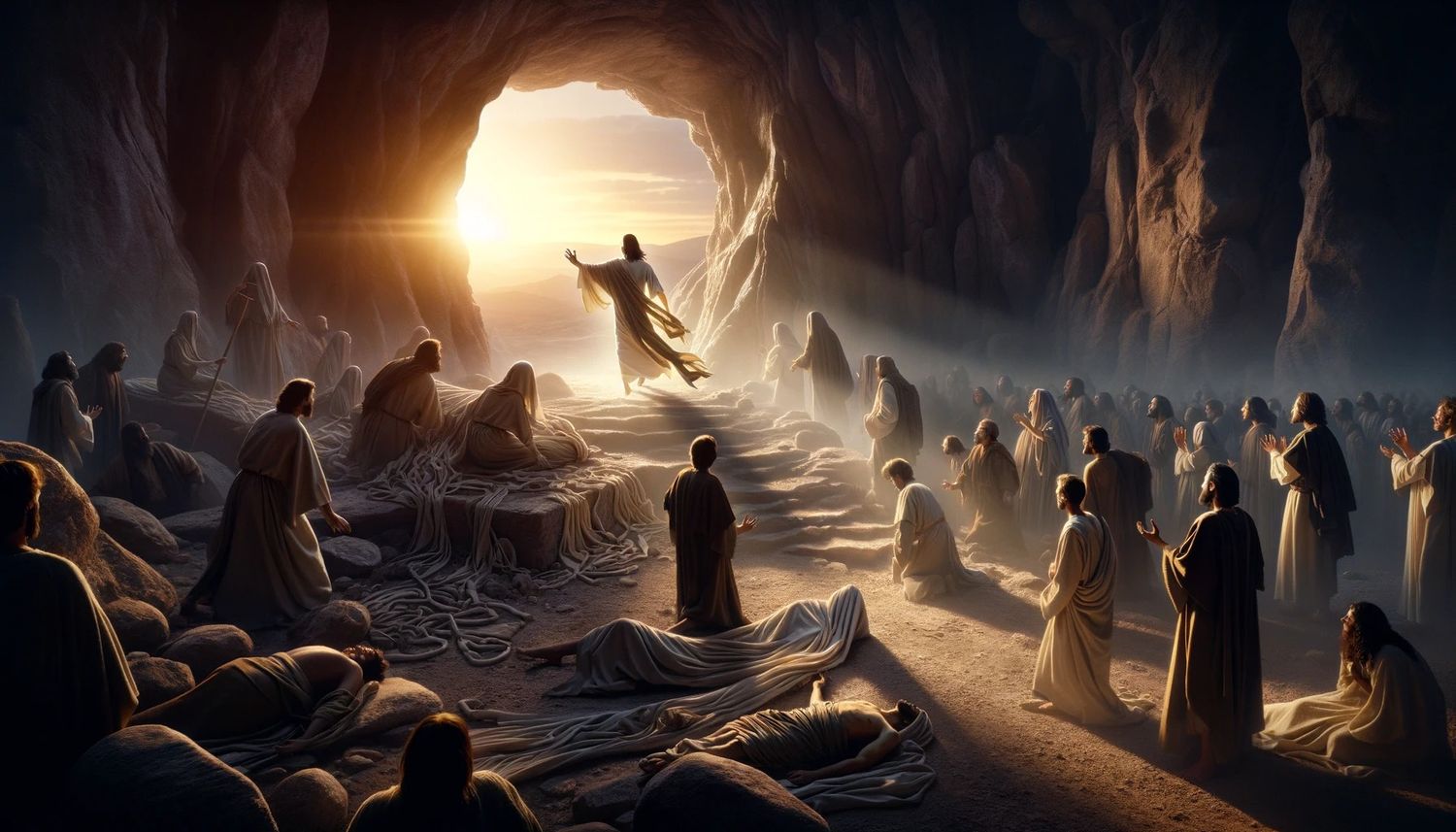Home>Theology and Spirituality>What Is Baptism Of The Dead
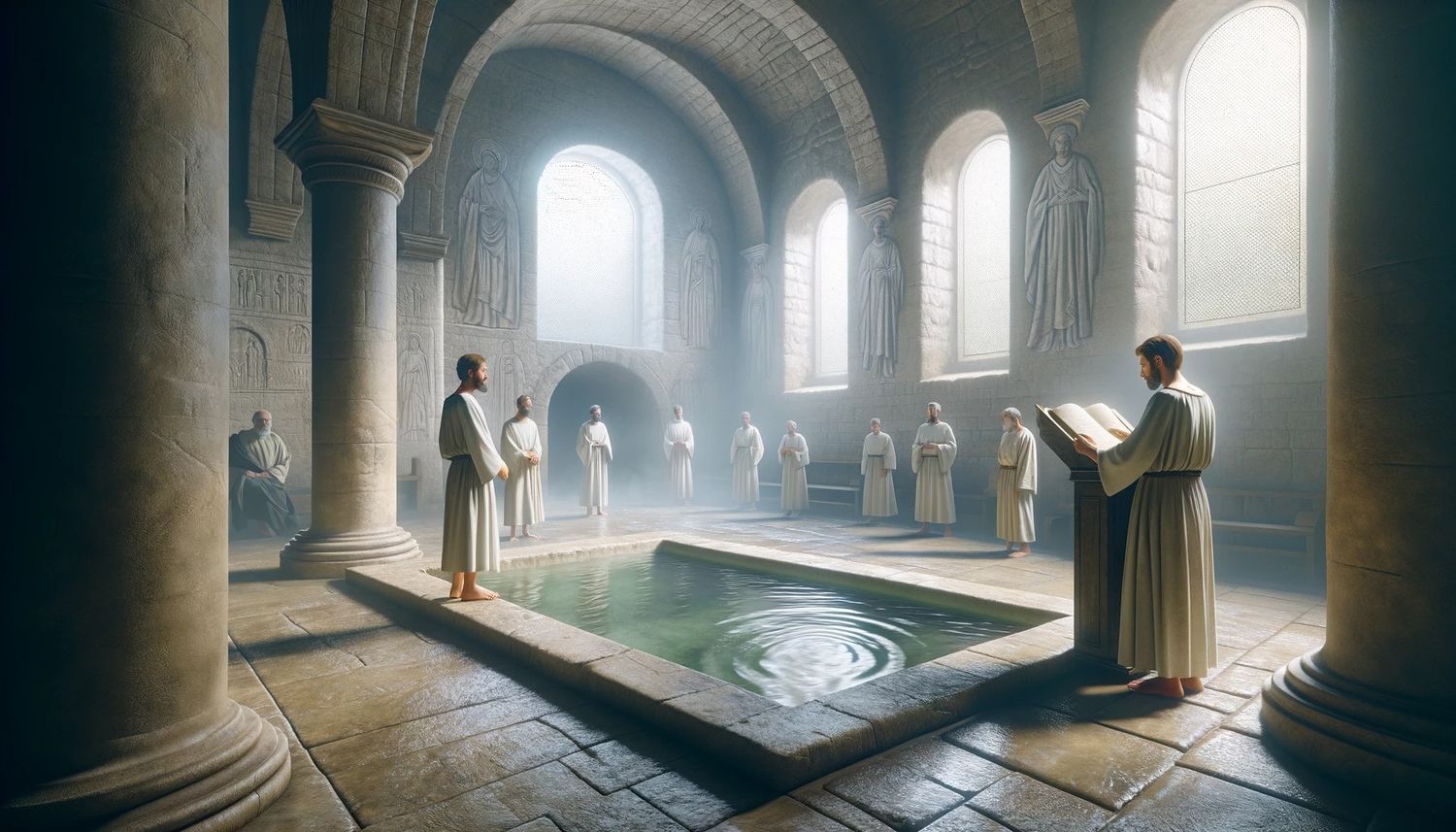

Theology and Spirituality
What Is Baptism Of The Dead
Published: March 2, 2024
Ericka Andersen, an editor at Christian.net, expertly merges digital strategy with content creation, focusing on faith and societal issues. Her communication skills enhance the platform's engaging narratives, fostering meaningful dialogue on belief's impact on society.
Learn about the theology and spirituality of baptism for the dead, its significance, and its practice in various religious traditions. Understand the beliefs and rituals surrounding this sacred act.
(Many of the links in this article redirect to a specific reviewed product. Your purchase of these products through affiliate links helps to generate commission for Christian.net, at no extra cost. Learn more)
Table of Contents
Understanding the Concept of Baptism for the Dead
Baptism for the dead is a religious practice that involves the baptism of a living person on behalf of someone who has died. This ritual is based on the belief that individuals who have passed away can still receive the blessings of baptism through the proxy actions of the living. The concept of baptism for the dead is rooted in the idea of providing an opportunity for those who have died without being baptized to receive the benefits of this essential sacrament. It is believed that through this act, the deceased individuals can choose to accept or reject the baptism performed on their behalf, thereby enabling them to progress spiritually in the afterlife. This practice is primarily associated with the beliefs and traditions of The Church of Jesus Christ of Latter-day Saints, commonly known as the Mormon Church.
Read more: What Is Mormon Baptism Of The Dead
Key Points to Understand about Baptism for the Dead
-
Proxy Baptism: Baptism for the dead is a form of proxy baptism, where living individuals act as proxies for the deceased, undergoing the ritual on their behalf. This act is seen as a way to extend the opportunity for salvation to those who have passed away without being baptized.
-
Spiritual Progression: The practice of baptism for the dead is rooted in the belief that individuals continue to progress spiritually after death. By providing the opportunity for the deceased to receive baptism, it is believed that they can make choices in the afterlife that align with their spiritual development.
-
Voluntary Acceptance: According to the beliefs associated with baptism for the dead, the deceased individuals have the agency to accept or reject the baptism performed on their behalf. This concept reflects the belief in the importance of individual agency and choice, even in the afterlife.
-
Eternal Families: Within the context of the Mormon faith, baptism for the dead is also connected to the concept of eternal families. It is believed that through this practice, families can be united for eternity, encompassing both the living and the deceased members of the family.
-
Historical Context: The practice of baptism for the dead has historical roots and is mentioned in early Christian writings, although its interpretation and application have varied across different religious traditions.
Understanding the concept of baptism for the dead provides insight into the theological and spiritual significance attributed to this practice within specific religious contexts. It reflects the belief in the continuity of spiritual progression beyond mortal life and the interconnectedness of individuals within the framework of religious teachings.
Historical Perspectives on Baptism for the Dead
-
Early Christian References: The practice of baptism for the dead has historical roots that can be traced back to early Christian writings. The apostle Paul, in his first letter to the Corinthians, makes a reference to the practice, stating, "Otherwise, what will those do who are baptized for the dead? If the dead are not raised at all, why then are they baptized for them?" (1 Corinthians 15:29, New American Standard Bible). This passage indicates that the early Christian community was familiar with the concept of baptism for the dead, although the specifics of how this practice was carried out remain a topic of scholarly debate.
-
Ancient Traditions: Beyond the early Christian references, historical perspectives on baptism for the dead also encompass a broader examination of ancient religious and cultural traditions. Some scholars have suggested that the practice may have been influenced by beliefs and rituals present in the ancient world, where proxy actions on behalf of the deceased were considered significant for their spiritual well-being in the afterlife. These historical perspectives shed light on the diverse cultural and religious contexts within which the concept of baptism for the dead emerged and evolved.
-
Development in Latter-day Saint Tradition: The modern understanding and practice of baptism for the dead are most prominently associated with The Church of Jesus Christ of Latter-day Saints. Historical perspectives within this tradition reveal that the concept was reintroduced and emphasized as part of the restoration of ancient Christian practices and doctrines. According to Latter-day Saint beliefs, the practice of baptism for the dead reflects a restoration of a principle that was present in the early Christian church but was lost or distorted over time. This historical perspective underscores the significance of the practice within the context of Latter-day Saint theology and religious identity.
-
Varied Interpretations: Throughout history, the concept of baptism for the dead has been subject to varied interpretations and applications within different religious traditions. While some groups have embraced the practice as a central element of their religious observance, others have viewed it with skepticism or rejected it altogether. These historical perspectives highlight the diversity of beliefs and practices surrounding baptism for the dead and the ways in which it has been understood and incorporated into religious communities across different time periods and cultural settings.
-
Continued Influence: The historical perspectives on baptism for the dead also demonstrate its continued influence and relevance within the broader landscape of religious thought and practice. The concept has sparked theological discussions, scholarly inquiries, and interfaith dialogues, contributing to a deeper understanding of its historical significance and contemporary implications within the realm of religious studies and comparative theology.
Exploring the historical perspectives on baptism for the dead provides valuable insights into the development, transmission, and interpretation of this religious practice across different historical and cultural contexts. It illuminates the interconnectedness of religious traditions and the enduring impact of ancient beliefs and rituals on contemporary religious expressions.
Theological Implications of Baptism for the Dead
-
Salvation and Redemption: The theological implications of baptism for the dead are deeply intertwined with the concepts of salvation and redemption within the framework of religious belief systems. This practice reflects the belief that individuals who have passed away without the opportunity for baptism can still receive the blessings of salvation through the vicarious actions of the living. It underscores the theological understanding of the expansive and inclusive nature of divine grace, extending the possibility of redemption to those who have transitioned into the afterlife.
-
Continuity of Relationships: Within the context of certain religious traditions, baptism for the dead carries theological implications related to the continuity of relationships beyond mortal life. It is believed that this practice enables the establishment of eternal familial bonds, uniting both the living and the deceased within a framework of spiritual interconnectedness. This theological perspective emphasizes the enduring nature of familial relationships and the significance of spiritual connections that transcend the boundaries of mortality.
-
Agency and Choice: The theological implications of baptism for the dead also encompass the principles of agency and choice within the context of religious teachings. The belief that deceased individuals retain the agency to accept or reject the baptism performed on their behalf reflects a theological understanding of the importance of individual autonomy and decision-making, even in the afterlife. This perspective underscores the theological significance attributed to the concept of agency as a fundamental aspect of spiritual progression and development.
-
Eternal Progression: In certain religious frameworks, baptism for the dead is associated with theological implications concerning the eternal progression of individuals beyond mortal existence. It is believed that this practice provides opportunities for the deceased to continue their spiritual journey and make choices that contribute to their ongoing development in the afterlife. This theological perspective emphasizes the belief in the potential for continued growth and progression beyond the earthly realm, reflecting the overarching framework of eternal existence within specific religious paradigms.
-
Restoration and Continuity: For some religious traditions, the theological implications of baptism for the dead are linked to the concepts of restoration and continuity within the broader narrative of religious history. The practice is viewed as a restoration of an ancient principle that was present in the early Christian church, reflecting a theological commitment to preserving and reviving foundational elements of religious belief and practice. This perspective underscores the theological significance of maintaining continuity with historical traditions and doctrines within the context of religious identity and faith expression.
-
Interconnectedness of Humanity: The theological implications of baptism for the dead also highlight the interconnectedness of humanity within the framework of divine providence and grace. This practice reflects the theological understanding of a collective human family, where individuals are bound together through shared spiritual experiences and the potential for mutual support and upliftment. It underscores the theological perspective of a universal human family, transcending temporal and spatial limitations, and embracing the interconnected nature of human existence within the context of religious teachings.
Exploring the theological implications of baptism for the dead provides a deeper understanding of the spiritual and doctrinal significance attributed to this practice within specific religious traditions. It illuminates the theological underpinnings of the belief systems that inform and shape the observance of baptism for the dead, offering insights into the broader theological frameworks that encompass concepts of salvation, agency, familial relationships, and the continuity of spiritual progression.
Scriptural Basis for the Practice of Baptism for the Dead
The scriptural basis for the practice of baptism for the dead is primarily derived from a passage found in the New Testament, specifically in the first letter to the Corinthians attributed to the apostle Paul. In 1 Corinthians 15:29, Paul makes a reference to the practice of baptism for the dead, stating, "Otherwise, what will those do who are baptized for the dead? If the dead are not raised at all, why then are they baptized for them?" This passage has been a focal point for theological discussions and scholarly inquiries regarding the scriptural foundation for the practice of baptism for the dead.
The mention of baptism for the dead in the writings of Paul has sparked diverse interpretations and debates within the realm of biblical studies and religious scholarship. Some scholars have sought to understand the historical and cultural context in which this practice was mentioned, exploring the possible influences of contemporary beliefs and rituals on the early Christian community. Others have delved into the linguistic and theological nuances of the passage, seeking to elucidate the specific meaning and significance of Paul's reference to baptism for the dead.
In addition to the passage in 1 Corinthians, proponents of baptism for the dead within specific religious traditions have also drawn upon other scriptural sources to support and validate the practice. These sources may include broader theological themes related to salvation, redemption, and the continuity of familial relationships, which are seen as interconnected with the theological framework underlying baptism for the dead.
The scriptural basis for the practice of baptism for the dead has been a subject of ongoing inquiry and interpretation within religious communities and academic circles. It has prompted a deeper exploration of the textual, historical, and theological dimensions of the passage in 1 Corinthians and its implications for understanding the religious significance attributed to the practice of baptism for the dead within specific religious traditions.
The scriptural basis for baptism for the dead continues to be a topic of theological reflection and scholarly investigation, contributing to a nuanced understanding of the intersections between scriptural texts, religious practices, and theological interpretations within the broader landscape of religious studies and biblical scholarship.
Read more: 10 Novena Prayers For The Dead
Controversies and Debates Surrounding Baptism for the Dead
-
Theological Disputes: The practice of baptism for the dead has been a subject of theological disputes and controversies within the realm of religious discourse. Critics and skeptics have raised theological objections to the concept, questioning its compatibility with established doctrines and interpretations within their respective religious traditions. These disputes have led to extensive theological debates, where differing perspectives on the theological validity and implications of baptism for the dead have been articulated and scrutinized.
-
Ethical and Moral Concerns: Controversies surrounding baptism for the dead also encompass ethical and moral concerns raised by individuals and religious communities. Some critics have expressed ethical reservations regarding the proxy performance of a sacred ritual on behalf of deceased individuals who may not have consented to such actions during their lifetime. This ethical dimension has sparked debates about the ethical implications of proxy ordinances and the boundaries of religious practices within the context of individual autonomy and consent.
-
Interfaith Dialogue and Critique: The practice of baptism for the dead has elicited critique and dialogue from interfaith perspectives, where representatives of different religious traditions have engaged in discussions about the theological, historical, and ethical dimensions of the practice. These interfaith dialogues have provided platforms for the exchange of diverse viewpoints, the articulation of concerns, and the exploration of common ground and differences regarding the practice of baptism for the dead across religious boundaries.
-
Legal and Cultural Controversies: In certain cultural and legal contexts, controversies have emerged surrounding the practice of baptism for the dead, particularly in relation to its implications for posthumous religious rites and the treatment of deceased individuals from diverse cultural and religious backgrounds. These controversies have prompted considerations of legal and cultural sensitivities, as well as discussions about the boundaries of religious freedom and the respectful treatment of the deceased within pluralistic societies.
-
Historical and Scholarly Inquiries: The controversies surrounding baptism for the dead have also intersected with historical and scholarly inquiries, where researchers and academics have explored the historical origins, development, and interpretations of the practice within diverse religious traditions. These inquiries have contributed to a deeper understanding of the historical contexts, cultural influences, and theological debates that have shaped the practice of baptism for the dead, shedding light on the complexities and controversies inherent in its historical and contemporary manifestations.
-
Theological Reinterpretations and Revisions: Within religious communities that practice baptism for the dead, controversies have prompted theological reinterpretations and revisions aimed at addressing the concerns and objections raised by critics and skeptics. These efforts have involved theological reflections on the scriptural foundations, ethical considerations, and interfaith dialogues, leading to nuanced theological perspectives and approaches that seek to navigate the controversies and debates surrounding the practice.
The controversies and debates surrounding baptism for the dead reflect the complex intersections of theology, ethics, interfaith dialogue, legal considerations, and historical inquiries within the broader landscape of religious studies and religious practice. These controversies have prompted critical reflections, scholarly investigations, and theological engagements that continue to shape the ongoing discourse and development of the practice within specific religious traditions and the broader religious community.
